Prostanew contains a long list of active ingredients. Besides the usual and proven prostate herbs such as saw palmetto and pygeum, it also contains a number of herbs with unproven benefits. Can the 33 ingredients in Prostanew improve prostate health, relieve urinary difficulties and enhance sexual performance in men with enlarged prostates? Read on to find out.
Prostanew is a prostate support supplement from Bioprosper Labs.
There are 33 active ingredients in Prostanew and each of them has been clinically proven to improve prostate health. Generally, the active ingredients of Prostanew provide the following benefits:
- Reduce DHT (dihydrotestosterone) levels in the prostate
- Reduce inflammation in the prostate by providing antioxidant protection
- Provide essential nutrients to help improve prostate health
Prostanew is formulated as capsules. Each bottle of the supplement contains 90 capsules.
The manufacturer recommends that users take 3 capsules daily. These can be taken at once but preferably taken with meals 3 times daily.
All the ingredients of Prostanew are safe and well-tolerated. The side effects of Prostanew are mild gastrointestinal discomforts.
The supplement is recommended for everyone except those who are allergic to any of the active ingredients and those already taking drugs (such as anticoagulants, oral contraceptive, and non-steroidal anti-inflammatory painkillers) that may be affected by these ingredients.
| Active Ingredients of Prostanew |
|
Herbs
- Saw palmetto
- Pygeum africanum
- Stinging nettle
- Uva ursi
- Green tea
- Red raspberry
- Cat’s claw
- Graviola
- Broccoli
- Mushrooms (Shiitake, Maitake, and Reishi)
- Juniper berry
- Buchu leaf
- Pumpkin seed
- Burdock root
- Cayenne pepper
- Goldenseal
- Gravel root
- Marshmallow root
- Parsley leaf
|
|
Plant-derived Phytochemicals
|
|
Vitamins
|
|
Minerals
- Zinc
- Copper
- Selenium
- Calcium
|
|
Amino Acids
- Glutamic acid
- L-Alanine
- L-Glycine
|
Saw palmetto or Serenoa repens is one of the classic herbs used to treat prostate problems. Prostanew contains a 40 - 45% extract of the berries of this small palm.
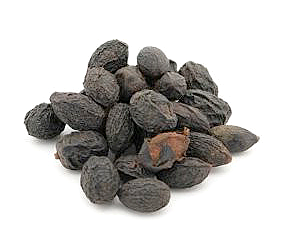 The two groups of active phytochemicals in saw palmetto are fatty acids and phytosterols.
The two groups of active phytochemicals in saw palmetto are fatty acids and phytosterols.
The fatty acids in saw palmetto can lower cholesterol levels and, therefore, the levels of androgen hormones such as testosterone and DHT. They also possess anti-inflammatory properties that can help reduce inflammation in the prostate.
However, phytosterols are the more prominent active ingredients of saw palmetto. Like fatty acids, they can also reduce cholesterol levels. In fact, these sterols are structurally similar to cholesterol but unlike cholesterol, the body cannot make androgen hormones out of them.
Besides reducing the production of androgen hormones, the phytochemicals in saw palmetto can also block the conversion of testosterone to DHT in the prostate. This is important because DHT is a more potent androgen than testosterone and one of the major causes of prostate enlargement.
Lastly, saw palmetto can also prevent testosterone and DHT from binding to androgen receptors in the prostate.
Androgen receptors are important because androgen hormones need to bind to them to act. By blocking these receptors, saw palmetto reduces the effects of androgens and prevents prostate enlargement.
Pygeum is an African tree species. Its medicinal extract is taken from the bark of the tree.
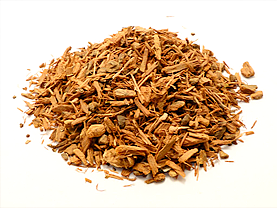 Pygeum contains phytosterols too as well as other bioactive compounds such as ferulic acid, triterpenes, and tannins.
Pygeum contains phytosterols too as well as other bioactive compounds such as ferulic acid, triterpenes, and tannins.
All of these phytochemicals can improve prostate health in different ways. For example, sterols and ferulic acid reduce the amounts of androgen hormones reaching the prostate while triterpenes and sterols prevent prostate inflammation.
Just as pygeum can prevent prostate enlargement, it can also help treat the complications of prostate problems such as erectile dysfunction and urinary difficulties.
Stinging nettle is a species of the large nettle family. It also contains phytosterols and fatty acids.
In addition to these, stinging nettle extract contains bioactive compounds such as flavonoids, lignans, and lectins.
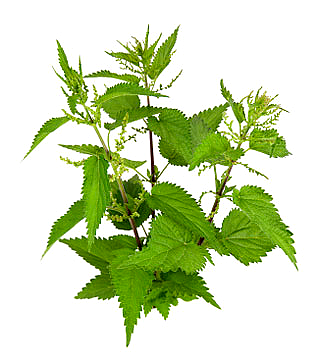 Therefore, stinging nettle can block androgen hormones from binding to androgen receptors in the prostate. Like saw palmetto, it acts by inhibiting the enzyme (5-alpha reductase) responsible for converting testosterone to DHT
Therefore, stinging nettle can block androgen hormones from binding to androgen receptors in the prostate. Like saw palmetto, it acts by inhibiting the enzyme (5-alpha reductase) responsible for converting testosterone to DHT
Stinging nettle also works by other mechanisms. First, it reduces estrogen levels in the prostate. This is important because estrogen increases the activities of DHT in the prostate. Therefore, lowering estrogen levels can help shrink an enlarged prostate.
Secondly, stinging nettle blocks a glycoprotein known as SHBG (sex hormone-binding globulin). This is the carrier protein responsible for transporting testosterone and estrogen to their sites of action.
By blocking this protein, stinging nettle reduces the levels of androgens and estrogen in the prostate.
Green tea extract is obtained from the leaves of Camellia sinensis. It is rich in polyphenol antioxidants such as epigallocatechin gallate or EGCG.
The antioxidants in green tea extract can protect the prostate from oxidative damage. However, green tea has other medicinal benefits provided by its anti-inflammatory and anticarcinogenic properties. Therefore, it can help shrink enlarged prostates, reduce inflammation in the prostate and reduce the risks of prostate cancer.
Uva ursi is also known as bearberry. It is believed to improve prostate health but clinical evidence for its medicinal use is lacking.
However, uva ursi is quite effective for providing relief for urinary difficulties. It can help prevent inflammation as well as fight bacterial infections in the urinary tract.
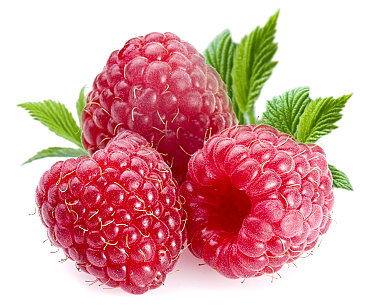 Pumpkin seed and burdock root contain fatty acids and phytosterols. Therefore, they share most of the mechanisms of action of the herbs discussed above.
Pumpkin seed and burdock root contain fatty acids and phytosterols. Therefore, they share most of the mechanisms of action of the herbs discussed above.
Cat’s claw is rich in medicinal alkaloids and anti-inflammatory tannins. It also possesses antioxidant and anticancer properties. Studies have shown that this herb can reduce the risks of certain cancers, reduce inflammation and help treat infections.
Red raspberries contain antioxidants; buchu leaf and gravel root extracts can improve blood circulation and rid the prostate and urinary tract of toxins; parsley has antioxidant and anti-cancer properties, and marshmallow root extract is included in Prostanew to help maintain general health.
The medicinal mushrooms included in Prostanew contain a phytochemical known as Active Hexose Correlated Compound or AHCC.
AHCC can enhance immune function and it has shown great promise in the treatment of prostate cancer.
Beta-sitosterol is the most popular phytosterol used in traditional medicine. Although it makes up a good part of the extracts of saw palmetto, pygeum, and stinging nettle, Bioprosper Labs added even more to Prostanew.
In fact, at 450 mg, the added beta-sitosterol is the most abundant active ingredient of Prostanew.
Beta-sitosterol is a potent anti-androgen and anti-inflammatory agent. Its mechanisms of action are the same ones discussed above for the phytosterol fractions of saw palmetto and stinging nettle.
A number of studies have established that combining beta-sitosterol with herbs such as saw palmetto can significantly relieve the symptoms of BPH.
Lycopene is a carotenoid and it is responsible for the colors of fruits and vegetables such as red peppers and tomatoes. It is also one of the most potent natural antioxidants.
Besides this antioxidant protection, lycopene can also help the prostate with its anti-inflammatory properties. Therefore, it can relieve prostate enlargement and inflammation.
In addition, lycopene can reduce the risk of prostate cancer. The anti-cancer benefits of this natural antioxidant are well studied. These studies show that lycopene can help prevent/treat prostate cancer by reducing the production of growth factors (responsible for increasing the population of prostate cells) in the prostate while increasing the production of regulatory proteins (responsible for controlling the growth of prostate cells).
Quercetin is another natural antioxidant. It is a bioflavonoid found in some grains, fruits, and vegetables.
The body metabolizes quercetin into other antioxidant compounds such as kaempferol and tamarixetin.
Quercetin also possesses anti-inflammatory properties. To relieve inflammation, it inhibits inflammatory cytokines. The antibacterial and antifungal properties of quercetin can also help fight infections in the urinary tract.
Vitamin B6 is included in Prostanew to help maintain prostate health as well as general health.
Because vitamin B6 is involved in a number of enzymatic biochemical reactions in the body as well as DNA synthesis and its repair, it can indeed boost metabolism in prostate cells while also protecting them from factors that may cause prostate problems.
In addition, vitamin B6 also promotes the absorption of zinc into the body. This role is particularly beneficial given the importance of zinc to prostate health.
Vitamin B6 has also been proven to reduce the risk of prostate cancer. In a large, long-term epidemiological study published in the American Journal of Clinical Nutrition, vitamin B6 supplementation was found to reduce mortality among a group of prostate cancer patients.
Vitamin E is an antioxidant vitamin and its antioxidant properties are even more potent when it is paired with selenium.
As an antioxidant, vitamin E can prevent prostate inflammation, BPH and prostate cancer by mopping up the free radicals and reactive oxygen species that may damage the prostate.
A number of high-profile studies have been done to investigate the efficacy of vitamin E supplementation in the treatment of prostate problems. Most of them concluded that vitamin E was indeed beneficial to the prostate.
This vitamin reduces the risk of prostate cancer, lowers PSA (prostate-specific antigen, a high level of the antigen indicates prostate problems) levels and blocks androgen receptors in the prostate.
Zinc is an important mineral in the prostate. In fact, the prostate has a rich store of the mineral and holds more than 500 times the amount of the mineral found in the blood.
Studies have shown that zinc deficiency can cause prostatitis, prostate enlargement, and prostate cancer.
Zinc plays multiple roles in the prostate. To maintain prostate health, zinc
- is incorporated into antioxidant enzymes that can protect the prostate from oxidative damage
- promotes DNA repair while preventing DNA damage; therefore, it reduces the risk of prostate cancer
- blocks the conversion of testosterone to DHT in the prostate
- promotes the breakdown of DHT in the prostate by inhibiting estrogen
Copper is included in Prostanew to help maintain general health. Since zinc and copper compete for absorption, long-term zinc supplementation may cause copper deficiency.
However, copper has antioxidant properties and can, therefore, also reduce oxidative stress in the prostate.
The inclusion of calcium in Prostanew is, however, curious especially because high blood level of calcium has been repeatedly linked with increased risk of prostate cancer.
Selenium is another antioxidant mineral. It is used to synthesize a family of antioxidant enzymes in the body. These enzymes can protect prostate cells from oxidative damage and reduce the risk of prostate cancer.
The combination of selenium and vitamin E in Prostanew has been demonstrated to especially provide a broad and effective antioxidant cover for the prostate. This combination was proven to improve prostate health in multiple studies.
The amino acids in Prostanew are included to supply essential nutrients to the prostate. As the building blocks of proteins, they can help increase the levels of regulatory proteins in the prostate.
Regulatory proteins are responsible for controlling cell growth cycle and, therefore, they can stop the rapid increase in the prostate cell population that may lead to prostate enlargement or prostate cancer.
Prostanew contains all the right active ingredients to help treat prostate problems. With the exception of a few ingredients such as calcium, the ingredients in Prostanew have been proven to improve prostate health and relieve the symptoms of prostate problems.
In addition, the combination of these active ingredients means that the supplement can address prostate problems in multiple ways.
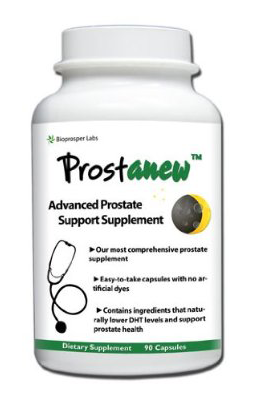 About half of Prostanew users report seeing improvements within 30 days. Most of these users also report improved sex drive and urinating less frequently especially at night. However, the other half of Prostanew users did not experience any improvements at all.
About half of Prostanew users report seeing improvements within 30 days. Most of these users also report improved sex drive and urinating less frequently especially at night. However, the other half of Prostanew users did not experience any improvements at all.
Besides this considerable failure rate, there are concerns that the zinc content of Prostanew is too high.
Prostanew contains 333% of the recommended daily intake of zinc. While Prostanew was formulated with a high concentration of zinc in order to increase the store of the mineral in unhealthy prostates, the high concentration of zinc may cause stomach pain while it is being absorbed in the gastrointestinal tract.
This is likely due to the gastrointestinal complaints commonly reported by users of Prostanew.
In summary, Prostanew is an effective prostate supplement. However, disappointed users (about half of its users) usually go back to their last prostate supplements because they got worse on Prostanew. With a success ratio of around 50%, Prostanew is not recommended for everyone suffering from prostate problems.
Sources
http://www.prostanew.com/how-it-works/
http://www.prostanew.com/ingredients/
http://www.manrelated.com/prostanew
http://www.prostanew.com/customer-reviews/
http://www.prostate-health-center.com/prostate-supplement-review-prostanew.php
[+] Show All






 The two groups of active phytochemicals in saw palmetto are fatty acids and phytosterols.
The two groups of active phytochemicals in saw palmetto are fatty acids and phytosterols. Pygeum contains phytosterols too as well as other bioactive compounds such as ferulic acid, triterpenes, and tannins.
Pygeum contains phytosterols too as well as other bioactive compounds such as ferulic acid, triterpenes, and tannins. Therefore, stinging nettle can block androgen hormones from binding to androgen receptors in the prostate. Like saw palmetto, it acts by inhibiting the enzyme (5-alpha reductase) responsible for converting testosterone to DHT
Therefore, stinging nettle can block androgen hormones from binding to androgen receptors in the prostate. Like saw palmetto, it acts by inhibiting the enzyme (5-alpha reductase) responsible for converting testosterone to DHT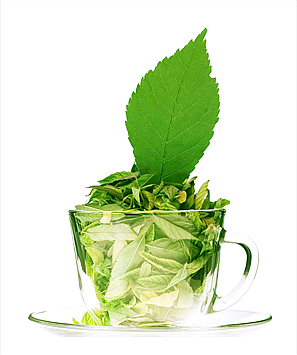 Green tea
Green tea Pumpkin seed and burdock root contain fatty acids and phytosterols. Therefore, they share most of the mechanisms of action of the herbs discussed above.
Pumpkin seed and burdock root contain fatty acids and phytosterols. Therefore, they share most of the mechanisms of action of the herbs discussed above. Lycopene
Lycopene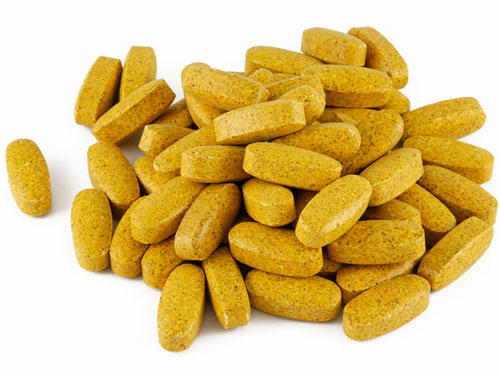 Zinc
Zinc About half of Prostanew users report seeing improvements within 30 days. Most of these users also report improved sex drive and urinating less frequently especially at night. However, the other half of Prostanew users did not experience any improvements at all.
About half of Prostanew users report seeing improvements within 30 days. Most of these users also report improved sex drive and urinating less frequently especially at night. However, the other half of Prostanew users did not experience any improvements at all.